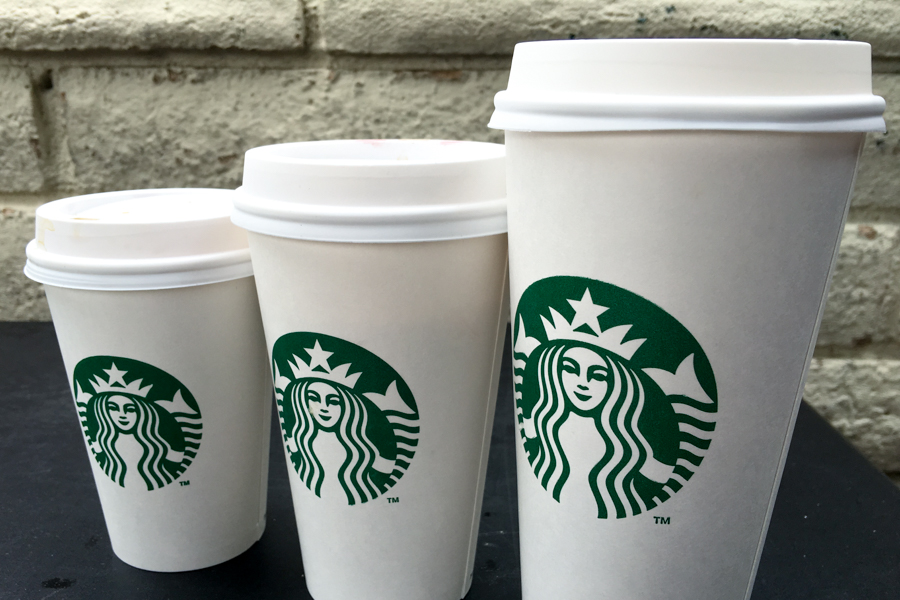
Exploring the coffee culture at UC Davis
Whether it’s the morning before your 8 a.m. class, the tiring mid-day stretch or even a late-night study session before finals, these moments are all united by a common theme: coffee.
With academics, extracurriculars and multiple other activities occurring in the average student’s life, it might seem impossible to get everything done without that extra boost. Yet, the reasons behind why students drink coffee differ from one another.
Some, like fourth-year biological sciences major Jaskaran Sahota, enjoy coffee simply because of its taste.
“I love the taste,” Sahota said. “I love to try new things, and coffee was no exception. With the myriad of blends, flavors and brands out there, it is always an adventure to try different flavors of coffee.”
For many people, the day doesn’t start until they’ve had their first cup.
“I start every morning with regular black coffee, about four cups,” said Hayden Irby, fourth-year environmental policy analysis and planning major. “I enjoy the flavor, the potential health benefits and the caffeine. The caffeine is especially nice because I usually workout after breakfast and then immediately head to school, but my primary reason for drinking it is that it tastes good and has no calories.”
Even students who work with coffee enjoy it, appreciating its “versatility,” in particular the ability to drink it on cold mornings and even hot days.
“I drink coffee mainly for comfort and taste,” said Dario John Avetisov, fourth-year pharmaceutical chemistry major and Starbucks employee. “It’s nice to have a hot cup of coffee on a cold day, or vice versa.”
Avetisov’s coffee tolerance is very high due to his employment at one of the largest coffee companies in the United States. However, he still sometimes drinks it for a small “energy boost.”
“I [have] unlimited access to it, so I actually [drink it] pretty rarely,” Avetisov said. “I also roast my own coffee and experiment with different brewing methods.”
Since students enjoy coffee so much, UC Davis created its own coffee course, ECM 1: The Design of Coffee, taught by professors in the chemical engineering department.
“We developed this idea three years ago with 80 students as an honors class,” said Tonya Kuhl, professor of chemical engineering. “It has [since then] mushroomed and grown into this phenomenon with over 500 students every quarter.”
The class gives students the chance to apply scientific principles in the laboratory with the application of how to produce the best cup of coffee. In fact, the class gives students a weekly lab session entirely dedicated to coffee production and tasting. As a result of collaborative scientific efforts that come with a growing interest in coffee, Kuhl has has watched a large change in the class’ population, evolving from mainly coffee-drinkers to non-coffee-drinkers and people of all majors.
“There are a lot of folks passionate about coffee, [and] they take the course,” Kuhl said. “But there’s just as many students who might not even like to drink coffee. It’s a hands on scientific lab course — we’ve had almost every single major take this class.”
Throughout the course of the class, Kuhl has seen many students become slowly accustomed to the tastes and effects of coffee.
“I have examples of students telling me they don’t like coffee and by the end of the course now they drink black coffee all the time,” Kuhl said. “We run the gambit of folks who are like ‘oh coffee is okay’ but if you think about how much of the world drinks coffee even if you don’t like it, it’s a good skill to be able to make a good cup of coffee for social aspects.”
While a dependence on coffee may seem complicated, the answer itself is fairly straightforward.
Coffee, at its core, possesses caffeine, a stimulant which is the sole reason students can stay awake during late night study sessions after a cup. There are benefits in moderate caffeine consumption.
“I don’t think it is a bad thing if students depend on it,” Sahota said. “Coffee has been clinically proven to reduce stress. I love it because of the taste, and it gets me through studying.”
Not only does it help boost energy levels, but coffee has also been shown to help boost metabolic rates and help people to lose weight, according to various studies. At the same time it offers essential nutrients to the body, like magnesium and potassium.
“It tastes great, gives me energy and there are always new studies being released on how it may be beneficial to one’s health,” Irby said. “Coffee does have some downsides, such as lightweight anxiety, but overall I’d argue that the benefits outweigh these.”
Among school, social activities and everything in between, coffee-drinkers can rest assured knowing that their cup will never run empty.
Written by: Alan Castillo — features@theaggie.org


